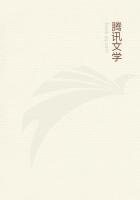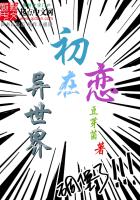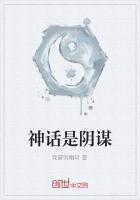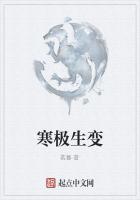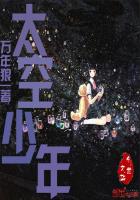WHEN, forty years afterwards, Henry Adams looked back over his adventures in search of knowledge, he asked himself whether fortune or fate had ever dealt its cards quite so wildly to any of his known antecessors as when it led him to begin the study of law and to vote for Abraham Lincoln on the same day.
He dropped back on Quincy like a lump of lead; he rebounded like a football, tossed into space by an unknown energy which played with all his generation as a cat plays with mice. The simile is none too strong. Not one man in America wanted the Civil War, or expected or intended it. A small minority wanted secession. The vast majority wanted to go on with their occupations in peace. Not one, however clever or learned, guessed what happened. Possibly a few Southern loyalists in despair might dream it as an impossible chance; but none planned it.
As for Henry Adams, fresh from Europe and chaos of another sort, he plunged at once into a lurid atmosphere of politics, quite heedless of any education or forethought. His past melted away. The prodigal was welcomed home, but not even his father asked a malicious question about the Pandects.
At the utmost, he hinted at some shade of prodigality by quietly inviting his son to act as private secretary during the winter in Washington, as though any young man who could afford to throw away two winters on the Civil Law could afford to read Blackstone for another winter without a master. The young man was beyond satire, and asked only a pretext for throwing all education to the east wind. November at best is sad, and November at Quincy had been from earliest childhood the least gay of seasons. Nowhere else does the uncharitable autumn wreak its spite so harshly on the frail wreck of the grasshopper summer; yet even a Quincy November seemed temperate before the chill of a Boston January.
This was saying much, for the November of 1860 at Quincy stood apart from other memories as lurid beyond description. Although no one believed in civil war, the air reeked of it, and the Republicans organized their clubs and parades as Wide-Awakes in a form military in all things except weapons. Henry reached home in time to see the last of these processions, stretching in ranks of torches along the hillside, file down through the November night; to the Old House, where Mr. Adams, their Member of Congress, received them, and, let them pretend what they liked, their air was not that of innocence.
Profoundly ignorant, anxious, and curious, the young man packed his modest trunk again, which had not yet time to be unpacked, and started for Washington with his family. Ten years had passed since his last visit, but very little had changed. As in 1800 and 1850, so in 1860, the same rude colony was camped in the same forest, with the same unfinished Greek temples for work rooms, and sloughs for roads. The Government had an air of social instability and incompleteness that went far to support the right of secession in theory as in fact; but right or wrong, secession was likely to be easy where there was so little to secede from. The Union was a sentiment, but not much more, and in December, 1860, the sentiment about the Capitol was chiefly hostile, so far as it made itself felt. John Adams was better off in Philadelphia in 1776 than his great-grandson Henry in 1860 in Washington.
Patriotism ended by throwing a halo over the Continental Congress, but over the close of the Thirty-sixth Congress in 1860-61, no halo could be thrown by any one who saw it. Of all the crowd swarming in Washington that winter, young Adams was surely among the most ignorant and helpless, but he saw plainly that the knowledge possessed by everybody about him was hardly greater than his own. Never in a long life did he seek to master a lesson so obscure. Mr. Sumner was given to saying after Oxenstiern: "Quantula sapientia mundus regitur!" Oxenstiern talked of a world that wanted wisdom; but Adams found himself seeking education in a world that seemed to him both unwise and ignorant. The Southern secessionists were certainly unbalanced in mind -- fit for medical treatment, like other victims of hallucination -- haunted by suspicion, by idèes fixes, by violent morbid excitement; but this was not all. They were stupendously ignorant of the world. As a class, the cotton-planters were mentally one-sided, ill-balanced, and provincial to a degree rarely known. They were a close society on whom the new fountains of power had poured a stream of wealth and slaves that acted like oil on flame. They showed a young student his first object-lesson of the way in which excess of power worked when held by inadequate hands.
This might be a commonplace of 1900, but in 1860 it was paradox. The Southern statesmen were regarded as standards of statesmanship, and such standards barred education. Charles Sumner's chief offence was his insistence on Southern ignorance, and he stood a living proof of it. To this school, Henry Adams had come for a new education, and the school was seriously, honestly, taken by most of the world, including Europe, as proper for the purpose, although the Sioux Indians would have taught less mischief. From such contradictions among intelligent people, what was a young man to learn?
He could learn nothing but cross-purpose. The old and typical Southern gentleman developed as cotton-planter had nothing to teach or to give, except warning. Even as example to be avoided, he was too glaring in his defiance of reason, to help the education of a reasonable being. No one learned a useful lesson from the Confederate school except to keep away from it. Thus, at one sweep, the whole field of instruction south of the Potomac was shut off; it was overshadowed by the cotton planters, from whom one could learn nothing but bad temper, bad manners, poker, and treason.


